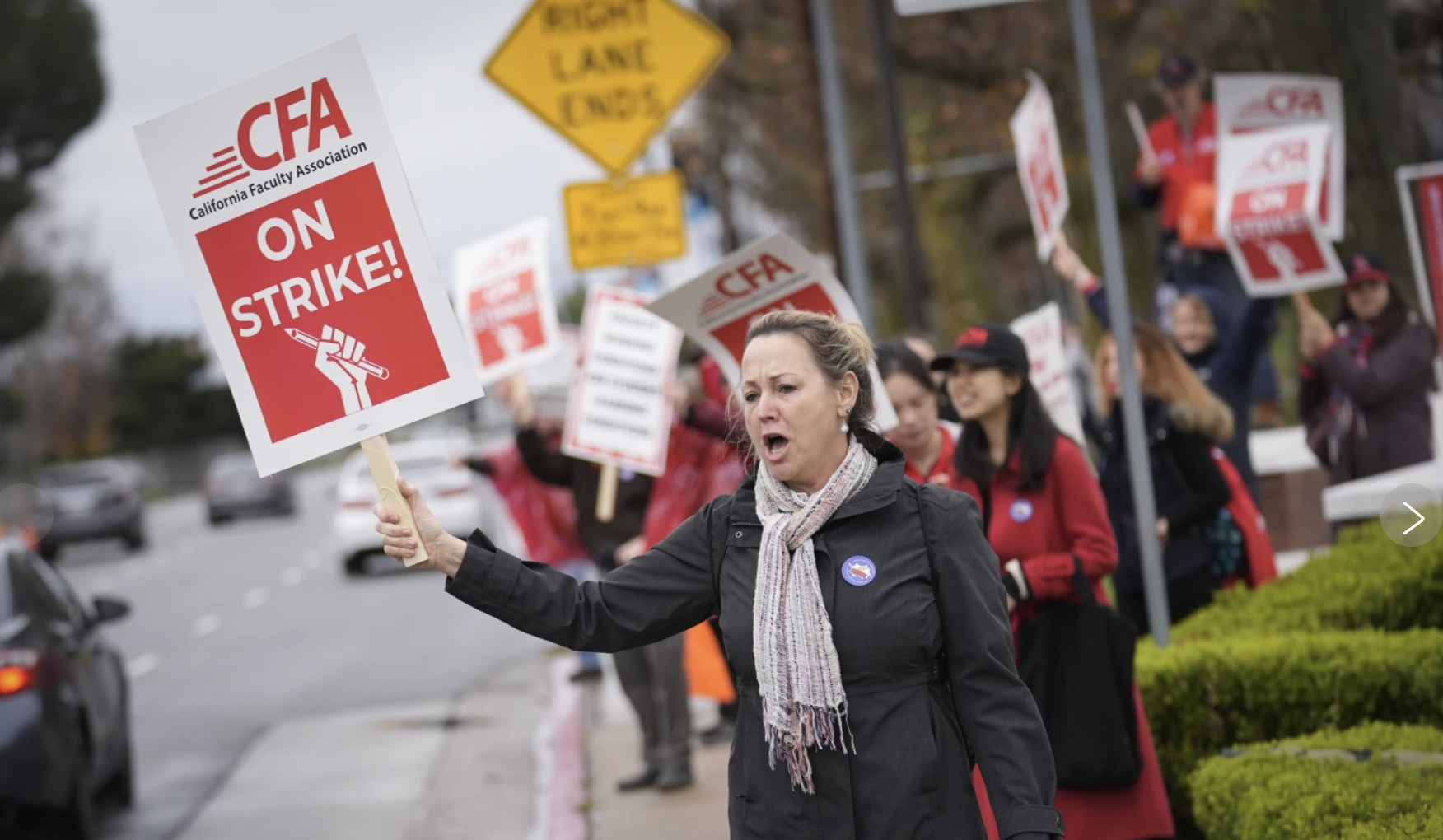California State University faculty launch weeklong strike across 23 campuses
Michele Bartlett, a professor in the social work department, pickets outside Cal State Northridge campus Sunday, Jan. 21. (AP Photo/Marcio Jose Sanchez)
SAN FRANCISCO (AP) — Nearly 30,000 professors, librarians, coaches, and other workers at California State University, the largest public university system in the U.S., walked off the job Monday in a weeklong strike to demand higher wages.
The stoppage across Cal State’s 23 campuses comes two weeks after CSU officials ended contract negotiations with a unilateral offer starting with a 5% pay raise this year, effective Jan. 31, far below the 12% hike that the union is seeking.
With the new semester beginning Monday, classes for many of the system’s 450,000 students could be canceled, unless faculty individually decide to cross picket lines.
Victoria Wilson, a part-time political science lecturer who picketed in the rain at Cal State Northridge in Los Angeles, said she’s striking for higher pay. She said her salary fluctuates from semester to semester, which impedes her long-term financial goals.
“We’re just hoping for a better contract to ensure better pay and also the working conditions here on campus,” Wilson said.
The California Faculty Association represents roughly 29,000 workers. Another 1,100 CSU plumbers, electricians and other skilled trades workers represented by the Teamsters Local 2010 were set to join the strike but reached an agreement with the university late Friday.
Some students on Monday joined the picket lines to show their support.
Cal State Long Beach student Gabriela Alvarez said she joined the demonstration outside the university to support her professors and to reject tuition hikes that will start this fall.
“It’s important for our professors to be treated right, we need more student resources here, we’re trying to lower tuition prices,” Alvarez said.
“I’m not going to be able to afford next semester if they go through with the tuition spikes,” she added.
Cal State Chancellor Mildred Garcia said Friday in a video call with journalists that the university system had sought to avoid a strike but the union’s salary demands are simply not viable.
“We must work within our financial reality,” she said.
In December, CFA members staged one-day walkouts on four campuses in Los Angeles, Pomona, Sacramento and San Francisco to press for higher pay, more manageable workloads and increased parental leave.
The union says the university has money in its “flush reserve accounts” and could afford the salary increases with funds from operating cash surpluses and the $766 million CSU has in emergency reserves.
Leora Freedman, CSU’s vice chancellor for human resources, said Friday those reserve funds cannot be tapped for wage hikes because they are meant for times of economic uncertainty or emergencies, including wildfires or earthquakes.
“We’ve made several offers with movement, and most recently a 15% increase that would be paid over three years, providing faculty a 5% increase each year. But the faculty union has never moved off its 12% demand for one year only,” she said.
The increase the union is seeking would cost the system $380 million in new recurring spending, which the university can’t afford, Freedman said.
Cal State Los Angeles student Katerina Navarro said she supports the strike. Monday was the first day of classes in her nursing program, and she was surprised her classes were not canceled.
